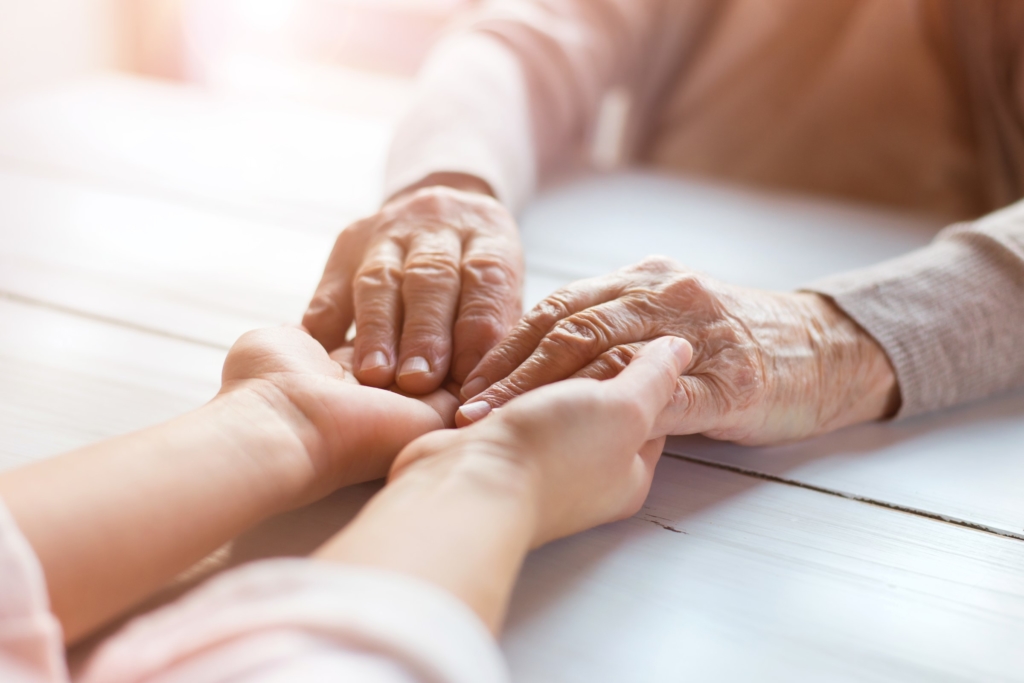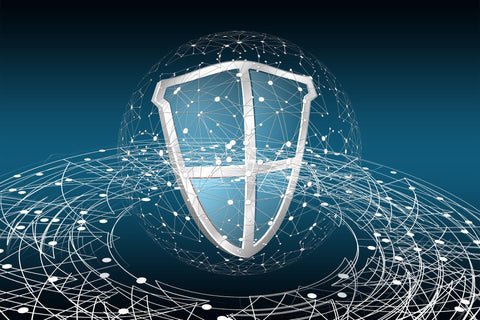- Pet Food Dispenser With Camera: The Ultimate Way to Monitor Your Pet’s Meals! - November 16, 2023
- Automatic Pet Feeder With Timer: A Time-Saving Solution for Busy Pet Owners - November 16, 2023
- Pet Tracker for Small Dogs: Discover the Ultimate Solution for Tracking Your Furry Friend - November 16, 2023
Home security systems for the elderly provide peace of mind and protection for seniors living independently. As our loved ones age, their safety becomes a top priority.
Whether they live alone or with a caregiver, it’s important to ensure their security in case of emergencies or potential dangers. Home security systems specifically designed for the elderly offer a range of features and benefits to keep them safe and secure.
These systems often include motion sensors, door and window alarms, panic buttons, and 24/7 monitoring, which can alert both the homeowner and emergency services in case of any suspicious or dangerous activity. Moreover, some systems integrate with smart home technology, allowing remote access for family members or caretakers to monitor their loved one’s activities and well-being. We will explore the importance of home security systems for the elderly, the different types available, and the key features to consider when choosing a system that fits their needs.
Understanding Unique Safety Needs
Understanding the unique safety needs of the elderly, home security systems provide peace of mind and protection. With user-friendly interfaces and specialized features like fall detection and medical alerts, these systems ensure safety and independence for seniors.
Considerations For Reduced Mobility
Reduced mobility is a significant concern for the safety and well-being of elderly individuals. As we age, our bodies may not move as easily as they once did, making it more difficult to navigate our homes. When it comes to home security systems for the elderly, it’s crucial to take into account these unique safety needs.
One of the first considerations for reduced mobility is ensuring that entrances and exits are easily accessible and secure. This may involve installing ramps or handrails, as well as updating door locks to ones that are easy to operate. Additionally, having a reliable emergency response system in place, such as a medical alert device, can provide peace of mind and quick assistance in case of a fall or other emergency.
Another aspect to consider is the overall layout of the home. Are there any areas that are particularly challenging to navigate? By carefully assessing the floor plan, modifications such as widening doorways or adding grab bars in key locations can greatly enhance the safety of the living environment.
Cognitive Challenges And Forgetfulness
For elderly individuals with cognitive challenges or forgetfulness, a home security system can be a vital tool in maintaining their safety and well-being. One of the key features to consider is a monitored alarm system that can alert caregivers or emergency services in the event of a wandering episode or other concerning behavior.
Additionally, technology has advanced to the point where smart home systems can integrate with medication dispensers and reminders. These automated systems can help ensure that medications are taken on time, reducing the risk of missed doses or accidental overdoses.
Simple modifications to the physical environment can also make a big difference. For example, label drawers and cabinets to aid in finding important items and encourage independence. Clear instructions and reminders in prominent locations can serve as helpful cues for daily tasks.
Sensory Impairments Affecting Sight And Hearing
Elderly individuals with sensory impairments, such as sight or hearing loss, have unique safety needs that must be addressed. When it comes to home security systems, the focus should be on enhancing the individuals’ ability to receive and respond to alerts or potential threats.
Ensuring that the home security system includes visual and audible alarms is essential. Visual alerts, such as flashing lights or smart light bulbs, can be installed to indicate potential dangers, like smoke or a triggered alarm. Likewise, audible alarms can be amplified, allowing individuals with hearing impairments to effectively respond to emergency situations.
Additionally, for those with visual impairments, it is important to declutter the living space and install proper lighting throughout the home. This will help reduce the risk of trips and falls, allowing for safer mobility within the home.
By understanding these unique safety needs and tailoring home security systems to address them, we can make a significant impact on the overall well-being of elderly individuals. With the right combination of technological advancements and thoughtful modifications, we can create a safer and more secure environment for our loved ones.

Credit: protectorsecurity.net
Smart Devices Offering Elderly-friendly Interfaces
When it comes to home security systems for the elderly, one of the key factors to consider is the ease of use. Smart devices with elderly-friendly interfaces have revolutionized home security, making it accessible and user-friendly for older adults. These devices simplify controls, offer voice-activated and wearable alarm systems, and provide remote monitoring for caregivers. Let’s explore each of these features in detail.
Simplified Controls And Automated Systems
Elderly individuals often face challenges when operating complex systems, especially when it comes to home security. However, with smart devices that offer simplified controls and automated systems, the process becomes effortless. These systems are designed to be intuitive and straightforward, making it easier for seniors to understand and manage their home security.
Voice-activated And Wearable Alarm Systems
Another innovative feature of smart devices for the elderly is the integration of voice-activated and wearable alarm systems. These devices allow seniors to control and activate their alarms through voice commands or wearable devices, such as smartwatches. With this technology, older adults can easily arm and disarm their home security systems without the need for complicated interactions or physical keypads.
Remote Monitoring For Caregivers
To ensure the safety and well-being of elderly loved ones, remote monitoring has become a crucial feature in home security systems. Smart devices offer advanced remote monitoring capabilities, allowing caregivers to keep track of their loved ones’ activities and receive real-time alerts in case of emergencies. This feature provides peace of mind for both the seniors and their caregivers, ensuring that help can be immediately summoned when needed.
In conclusion, smart devices with elderly-friendly interfaces play a vital role in enhancing home security for older adults. With simplified controls and automated systems, voice-activated and wearable alarm systems, and remote monitoring for caregivers, these devices offer a comprehensive solution that prioritizes ease of use and peace of mind. By embracing these technological advancements, seniors can maintain their independence while staying protected in their own homes.
Balancing Cost And Features For Optimal Safety
When it comes to choosing a home security system for the elderly, finding the right balance between cost and features is crucial. Elderly individuals require a security system that not only fits within their budget but also provides the necessary features to ensure their safety and peace of mind. In this article, we will explore the factors that affect the price of security systems for the elderly, the must-have security features for elder care, and the differences between DIY and professional installation options.
Factors Affecting The Price Of Security Systems
Before diving into the list of must-have security features, it’s important to understand the factors that contribute to the price of home security systems for the elderly. By considering these factors, you can make an informed decision based on your budget and specific needs:
- System Complexity: The complexity of the security system can significantly impact its price. Systems with advanced features like video surveillance, motion detectors, and remote access tend to be more expensive compared to basic alarm systems.
- Equipment Quality: The quality of the equipment used in the security system can vary, and higher-quality components often come at a higher price. However, investing in reliable equipment is essential to ensure the effectiveness and longevity of the system.
- Monitoring Services: Many security systems offer monitoring services for an additional fee. Professional monitoring can provide round-the-clock surveillance and immediate response to emergencies, but it comes with an extra cost.
- Contract Length: Security system providers often offer different contract lengths, such as monthly or long-term contracts. Long-term contracts may come with discounted rates, but they require a commitment for a specified period of time.
- Installation: While some security systems can be easily installed as a do-it-yourself project, others may require professional installation. Professional installation ensures proper setup and integration but adds to the overall cost.
Must-have Security Features For Elder Care
When selecting a security system for the elderly, certain features are essential to ensure their safety and well-being. These features provide an extra layer of protection and enable caregivers and family members to monitor their loved ones effectively. Consider including the following features in your home security system:
- Medical Alert Integration: Elderly individuals often require immediate medical assistance in case of an emergency. Look for a security system that offers integration with medical alert devices, allowing a direct connection to emergency services.
- Fall Detection: Falls are a common risk for the elderly, and a security system with fall detection capabilities can be a life-saving feature. This feature automatically detects falls and sends an alert to caregivers or emergency contacts.
- Panic Buttons: Easily accessible panic buttons, placed strategically throughout the house, enable the elderly to call for help instantly in case of an emergency or feeling unsafe.
- Video Surveillance: Video cameras placed both indoors and outdoors provide a comprehensive view of the surroundings. This feature allows caregivers to remotely monitor their loved ones and detect any potential risks or suspicious activity.
- Smartphone Integration: Opt for a security system that offers smartphone integration, allowing caregivers and family members to receive real-time alerts and access the system remotely, providing peace of mind even when they are away.
Comparing Diy And Professional Installation Options
When it comes to installing a home security system for the elderly, you have the option to choose between DIY installation or professional installation provided by the security system provider. Consider the following factors when deciding which option is best for you:
| DIY Installation | Professional Installation |
|---|---|
| Cost-effective | Ensures proper setup |
| Can be completed at your convenience | Expert guidance during installation |
| Potentially requires technical knowledge | Integration with existing systems |
| May take longer due to self-installation | Immediate assistance if any issues arise |
Consider your technical abilities, time constraints, and comfort level with DIY projects while deciding on the installation method. While DIY installation may provide cost savings, professional installation ensures a seamless and reliable setup.
Seamless Emergency Response For Peace Of Mind
Home security systems are essential for providing safety and peace of mind for the elderly. One of the most crucial aspects of these systems is ensuring a seamless emergency response. By integrating medical alert systems, real-time health monitoring technologies, and quick access to assistance, we can offer the elderly a comprehensive solution that allows them to age in place confidently.
Medical Alert Systems Integration
Medical alert systems play a pivotal role in ensuring the safety of the elderly. By seamlessly integrating these systems into home security setups, we provide immediate access to help in case of emergencies. With just a push of a button, seniors can quickly summon assistance, be it for a medical crisis or any other urgent situation. The integration of medical alert systems not only guarantees peace of mind but also enhances the overall security of their living environment.
Real-time Health Monitoring Technologies
To further enhance the emergency response capabilities of home security systems for the elderly, the integration of real-time health monitoring technologies is paramount. These cutting-edge technologies allow for continuous tracking of vital signs and other health-related data, empowering both the individual and their caregivers with vital information. By monitoring parameters such as heart rate, blood pressure, and glucose levels, any potential health issues can be detected early on, and appropriate actions can be taken promptly. This proactive approach ensures that the elderly receive the necessary medical attention before a situation escalates, resulting in a seamless emergency response.
Quick Access To Assistance
In times of emergency, every second counts. Home security systems designed for the elderly prioritize quick access to assistance. Whether it’s a fall, a medical emergency, or a security threat, immediate help is just a call away. These systems provide direct and reliable communication channels with emergency response teams, enabling swift dispatching of aid. With clear instructions and well-established protocols, the elderly can trust that help will arrive promptly – minimizing potential risks and providing them with the peace of mind they deserve.
In conclusion, seamless emergency response is crucial for ensuring the safety and well-being of the elderly. By integrating medical alert systems, real-time health monitoring technologies, and quick access to assistance, home security systems can meet the unique needs of this vulnerable population. This comprehensive approach allows the elderly to age in place confidently, knowing they can rely on a system that prioritizes their safety and security.
Community And Family Involvement In Elder Security
Community and Family Involvement in Elder Security is crucial for ensuring the safety and well-being of our beloved elderly. With the right support system, we can create a protective environment that allows our aging loved ones to live with peace of mind. In this blog post, we will explore various ways to involve family, friends, neighbors, and local resources in the security of our senior community members.
Educating Family And Community On Elderly Safety
One of the first steps in ensuring elder security is to educate both family members and the community about the specific safety needs of the elderly. By raising awareness about common risks and potential hazards, we empower our loved ones with the knowledge they need to protect themselves. When it comes to educating family and community on elderly safety, consider the following:
- Hold regular information sessions or workshops to discuss common safety concerns for seniors.
- Share important safety tips and advice through newsletters, social media platforms, or community bulletin boards.
- Encourage open communication among family members and neighbors to discuss safety concerns and exchange valuable information.
- Organize training sessions on topics such as fall prevention, fire safety, and recognizing signs of elder abuse for both family members and community members.
Building A Support System With Neighbors And Friends
In order to create a safe environment for our elderly loved ones, it’s important to foster strong relationships and build a support system within the community. By actively involving neighbors and friends, we create a network that can keep an eye out for any unusual activities or potential dangers. Here are a few steps to consider:
- Introduce your elderly family member to neighbors and encourage regular interactions and communication.
- Establish a neighborhood watch program or informal checking system, where neighbors look out for each other in terms of safety.
- Organize regular social gatherings or events for the elderly, promoting a sense of community and belonging.
- Encourage neighbors to exchange contact information and establish a communication channel to report any suspicious activities or emergencies.
Local Resources And Services For Elder Protection
Communities often have dedicated local resources and services available to support the safety and well-being of the elderly. By tapping into these resources, we can enhance elder protection in a structured and effective manner. Consider the following options:
| Local Resources | Services Offered |
|---|---|
| Senior centers | Provide a safe and social environment for seniors, offer recreational activities, and connect them with necessary resources and support. |
| Elderly support groups | Offer emotional support, shared experiences, and practical guidance to help seniors navigate safety concerns. |
| Non-profit organizations | Offer a range of services including home safety assessments, personal emergency response systems, and caregiver support. |
By utilizing these local resources and services, families can ensure that their elderly loved ones have access to the support they need to live confidently and securely in their own homes.
Frequently Asked Questions For Home Security Systems For The Elderly
How Do Home Security Systems Help Protect Elderly Individuals?
Home security systems provide round-the-clock surveillance, motion detection, and emergency alerts to ensure the safety of elderly individuals at home.
What Features Should I Look For In A Home Security System For Elderly Individuals?
Look for features such as medical alert buttons, fall detection, 24/7 monitoring, video surveillance, and easy-to-use interfaces in a home security system.
Are Home Security Systems Easy To Install And Use For The Elderly?
Yes, modern home security systems are designed to be user-friendly and can be easily installed and operated by elderly individuals without any technical expertise.
Can Home Security Systems Help Prevent Accidents And Injuries In Elderly Individuals?
Yes, home security systems can help prevent accidents and injuries by offering features like automatic lighting, video doorbells, and monitoring for smoke, carbon monoxide, and water leaks.
How Can A Home Security System Provide Peace Of Mind To The Family Of Elderly Individuals?
A home security system can provide peace of mind by enabling remote monitoring, real-time alerts, and immediate response in case of emergencies, ensuring the safety of elderly loved ones.
Conclusion
Home security systems provide crucial protection for the elderly, ensuring their safety and peace of mind. These advanced systems, equipped with features such as medical alert devices, motion sensors, and remote monitoring, offer comprehensive solutions tailored to their unique needs.
By investing in a reliable home security system, elderly individuals can confidently age in place while maintaining their independence. Don’t compromise their security – prioritize their safety with a dedicated home security system today.


